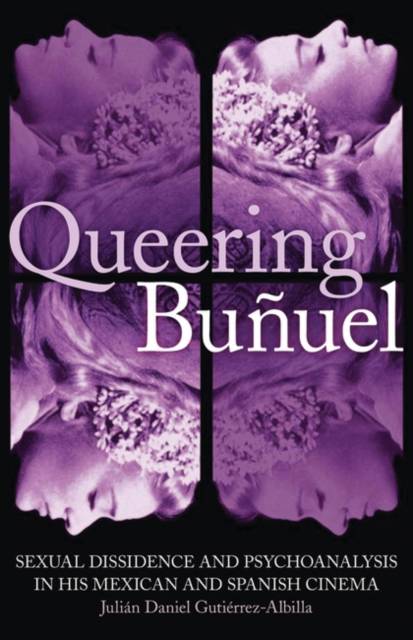
- Retrait gratuit dans votre magasin Club
- 7.000.000 titres dans notre catalogue
- Payer en toute sécurité
- Toujours un magasin près de chez vous
- Retrait gratuit dans votre magasin Club
- 7.000.0000 titres dans notre catalogue
- Payer en toute sécurité
- Toujours un magasin près de chez vous
Queering Buñuel
Sexual Dissidence and Psychoanalysis in His Mexican and Spanish Cinema
Julian Daniel Gutierrez-AlbillDescription
As the father of cinematic Surrealism, extensive critical attention has been devoted to Luis Buñuel's cinema. Much has been written about his first Surrealist films of the 1920s and 1930s and the French art movies of the 1960s and 1970s. However, here for the first time is a queer re-reading of Buñuel's Spanish-language films allowing us to view Buñuel's cinema through a lens of queer spectatorship. Focusing on the films Buñuel produced in Mexico and Spain during the 1950s and 1960s, Julián Daniel Gutiérrez-Albilla argues not that Buñuel's films have a homosexual subplot, but that there are multiple forms of identity, subjectivity and sexuality present in these films.
Queering Buñuel brings together the fields of film studies, feminist and queer theory, Hispanic studies, psychoanalysis and art theory. Gutiérrez-Albilla succeeds in reconceptualizing Buñuel's Mexican and Spanish films beyond geographical, historical and disciplinary boundaries, questioning not just how we see Buñuel, but also how we see cinema.
Spécifications
Parties prenantes
- Auteur(s) :
- Editeur:
Contenu
- Nombre de pages :
- 256
- Langue:
- Anglais
- Collection :
Caractéristiques
- EAN:
- 9781845116682
- Date de parution :
- 01-07-08
- Format:
- Livre relié
- Format numérique:
- Genaaid
- Dimensions :
- 164 mm x 236 mm
- Poids :
- 557 g

Les avis
Nous publions uniquement les avis qui respectent les conditions requises. Consultez nos conditions pour les avis.






